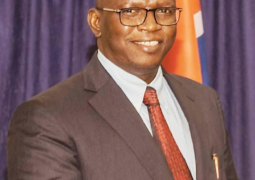
According to a statement by DLEAG, the presence and use of marijuana in the country is pervasive across various strata of society.
“Yet, it is not just the allure of marijuana that plagues the nation; The Gambia has become a crossroads for international drug trafficking, with cocaine smuggling routes intricately woven through its borders,” a statement in its website says. “This complex and multifaceted issue poses formidable challenges for the Gambian authorities, requiring a comprehensive approach to combat the menace of drug abuse.”
Most of the cannabis sativa found in The Gambia “comes from the Cassamance region of Senegal and the West Coast Region”, although it is grown in diverse places across the country, added the statement.
According to DLEAG, the 2017 drug statistics on drug seizures revealed the presence of other forms of controlled and prohibited drugs like cocaine, heroin, Clonazepam, Diazepam, and Bromazepam. The enforcement body further stated that the advent of new psychoactive substances is a threat that is equally not exempted from The Gambia. The youths are mostly affected by this endemic.
Statistics from the country's only psychiatric hospital also show that about 60% of their admission cases are on Drug-Induced Psychosis. Thus, to curb this menace, the agency continues to work with relevant stakeholders on both the drug demand reduction and supply suppression front on measures and means to curtail the menace.
Speaking to The Point, Mamour M. Mbenga, Brand Ambassador of DLEAG, affirmed that he is now realising the benefit of the decision he made to change from being a drug addict after years. He further explained that his reformation did happen when he started deciding the best for him.
The former drug addict said he decided to quit taking illicit drugs after making the decision to engage with religious leaders like the late Imam Barham Jobe of Serekunda mosque, who he said contributed to his rehabilitation process.
"He was someone I look up to as a role model,” he commended, saying: “Imam played a great role in changing my life in religious ways and this also helps stop all the suicidal behaviours I was having in the streets."
Mr Mbenga added that his mother also played a key role in his reform by praying for and counselling him to change to lead a good life. Throughout his trying times, Mbenga stated that many of his family members abandoned him and later sent him away from the family house due to his aggressive behaviour. As a result of that, he continued to use more drugs and became more vulnerable, which contributed to his becoming a street child for years after losing his father at a juvenile age.
He said that after the wind of change in his life started, his uncle in England has been making huge contribution financially, mentally and morally to ensure that he succeeds and grows better.
Mr Mbenga mentioned that his national recognition as Brand Ambassador was an appreciation, recognition, and compliment for his hard work and achievement, as he has not only been able to reform himself but has also been able to develop his career goal over a short period.
"I am now a practising journalist, seaman, sports administration manager, Universal Treatment Curriculum on Substance Use Disorders Certified Counselor,” Mbenga said. “I have obtained my Diploma in Journalism, Football Business Management, and HR at the Valley View University in Ghana and also obtained my qualifications in the Maritime Industry; in Standard of Training, Certification for Watch Keeping (STCW), being an Able Bodied Sailor. I have travelled through these skills via road, air, and sea with Global Country Travel to more than 26 countries in Asia, Africa, Eastern Europe, the Middle East, and South America."
Now owning an online multiple media company called Africa Citizen Radio, Mr Mbenga has also set up a grassroots football club to sensitize athletes on the dangers of drugs in sport and the legal implications.
Yankuba Suwareh, Head of Community Mental Health at the Ministry of Health, explained that in The Gambia, Drug-Induced Psychosis is one of the leading mental health conditions affecting the population and causing a lot of dropouts from school, as well as marital and family conflicts.
Drug use can also increase the risk of contracting infections, he said, adding that HIV and hepatitis C (a serious liver disease) can occur from sharing injection equipment or from unsafe practices such as condom-less sex. He said infection of the heart and its valves (endocarditis) and skin infection (cellulitis) can occur after exposure to bacteria by injection drug use.
“It is well-known that tobacco smoke can cause many cancers; methamphetamine can cause severe dental problems known as 'meth mouth', and that opioids can lead to overdose and death. In addition, some drugs such as inhalants, may damage or destroy nerve cells either in the brain or the peripheral nervous system (the nervous system outside the brain and spinal cord),” he stated.
Suwareh further said that people with addiction often have one or more associated health issues, including lung or heart disease, stroke, cancer, or mental health conditions.





